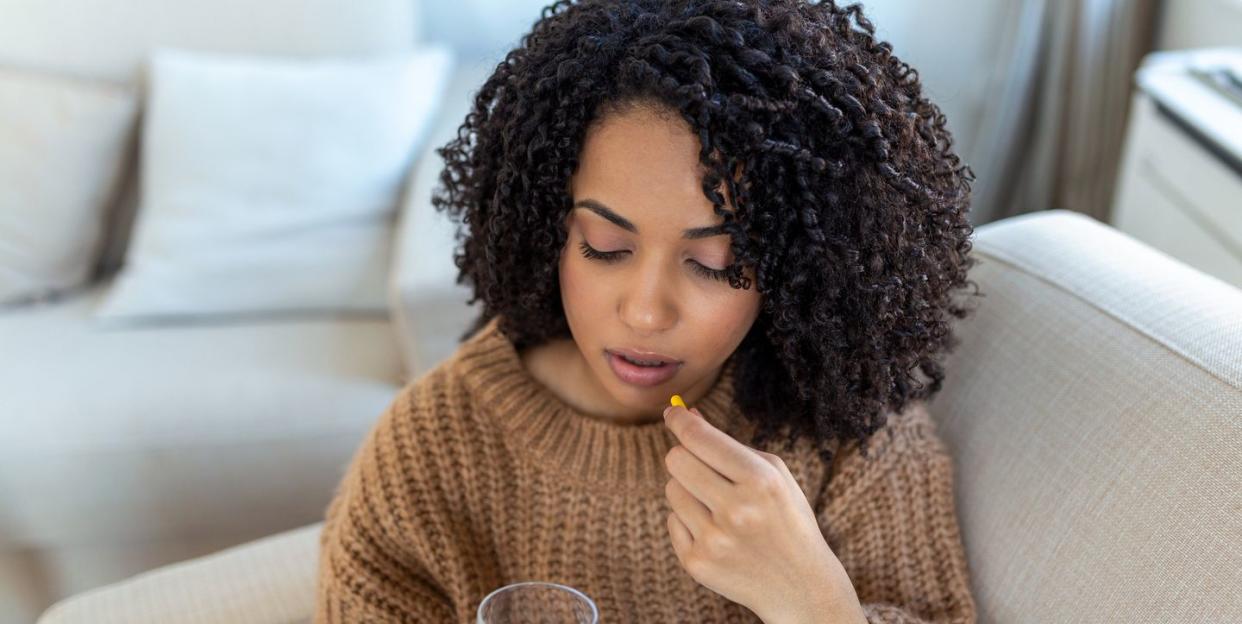Everything you need to know about taking the pill whilst pregnant

Understanding the pill isn’t always straightforward, from understanding the side effects to finding one that works for you (and knowing what can stop your pill from working in the first place). But when taken correctly, contraceptive pills offer 99% reliability against unplanned pregnancy.
On the off chance you’ve been taking the pill every day but do find yourself pregnant, you might be thinking; how did this happen? Can taking the pill harm the baby during pregnancy? Can it lead to miscarriage or complications? What do I do now?
With so many questions, we decided to ask the experts to understand what happens if you take the pill when you’re pregnant…
Can you get pregnant while on the pill?
First things first: yes, it’s possible to get pregnant while taking birth control pills, mainly because taking the pill correctly every single day and following the pill rules perfectly, well, it’s not easy. When taken ‘perfectly’ (e.g. without fail), the pill has a failure of less than 1% (1 in 100), which makes actually getting pregnant, a rarity. But the ‘typical’ failure rate (which is the norm) is much higher at around 9% (9 in 100), says Dr Deborah Lee at Dr Fox online pharmacy.
What happens if you take the pill while pregnant?
Here’s the good news – if you have become pregnant while taking the pill regularly, according to medical research studies there are no known harmful effects on the baby. The foetus grows all its internal organs in the first twelve weeks of pregnancy, and exposure to oestrogen and progesterone from the contraceptive pill does not appear to affect this.
But Dr Lee says that if you do get pregnant while on the pill, it’s best to stop taking it straight away. “You don’t need those extra hormones, and taking the pill plus being pregnant would increase your risk of deep vein thrombosis (which is a blood clot FYI),” she says.
Taking the contraceptive pill during pregnancy was also studied in Denmark in 2016 using 880,694 live births – women who had never used the pill before pregnancy were compared to those who had used it in the three months before, or the three months after, conceiving. The study found there was no difference in the number of birth defects between the groups.

Although there appears to be no real harm at risk, both experts highlight that babies born from people who have taken oral contraception during pregnancy are at risk of developing wheezing, asthma, and rhinitis in their lifetime.
On the other hand, Dr AlBendar says taking the mini pill (which contains only progestin) while pregnant may increase the chance of an ectopic pregnancy (where the fertilised egg implants outside the uterus) and the risk of hypospadias in boys (a congenital disability where the opening of the urethra is not located at the tip of the penis).
What are the side effects of taking the pill while pregnant?
As for the pregnant person themselves, if you continue to take the pill while pregnant, Dr Lee says pill related symptoms could worsen. The most common symptoms are headaches, bloating, nausea, spotting and irregular bleeding. For most women, side effects on the pill are common when they first start taking it, but if they haven’t settled over the first few months, this needs to be discussed with a doctor.
“If you are pregnant and taking the pill, you’re advised to stop taking the pill as soon as the pregnancy is confirmed,” Dr Lee said. “The pill is not designed to be taken in pregnancy and its use has not been studied in pregnant women.” As for long-term implications, there’s no sufficient evidence to back this up.
Can taking birth control pills while pregnant cause a miscarriage?
There is mixed evidence as to whether mothers taking the pill early during pregnancy may have a greater risk of experiencing preterm labour, low birth weight, and congenital urinary tract anomalies, says Dr AlBendar, adding that studies have not shown any link between taking the pill while pregnant, and miscarriages or stillbirth.
Dr Lee says it’s also important not to get confused with emergency contraception (the morning-after pill) Levonelle, which is a large dose of progesterone (levonorgestrel), one of the hormones in the pill. “This must be taken within five days of unprotected sex and prevents fertilisation of the egg.”
Taking the morning after pill whilst you are pregnant does not cause an abortion or a miscarriage, according to Dr Lee, but it can cause vaginal bleeding. “It is not advisable to take emergency contraception when you know you are pregnant, but if this happens, it is unlikely to cause harm.”
I don’t know if I'm pregnant yet. Should I stop taking my pill?
If you’re currently taking the pill and have a bleed during your 7-day break, but you suddenly miss a month of bleeding, Dr Lee advises that you take a pregnancy test. Or, if you’ve been taking the pill for some time, and have started to notice symptoms related to early pregnancy, such as tender breasts or feeling sick, you should seek medical advice immediately – but Dr Lee says you should continue taking your pill while doing this. “Don’t stop taking it until you’ve had the correct advice from your GP or the Sexual Health Clinic,” she confirms.
With this in mind, Dr AlBendar emphasises that it is essential to stop taking the pill once the pregnancy is acknowledged.
This article is not intended to be a substitute for professional medical advice or diagnosis. Always seek the advice of your doctor, midwife or other qualified health provider with any questions you may have regarding a medical condition.
You Might Also Like


